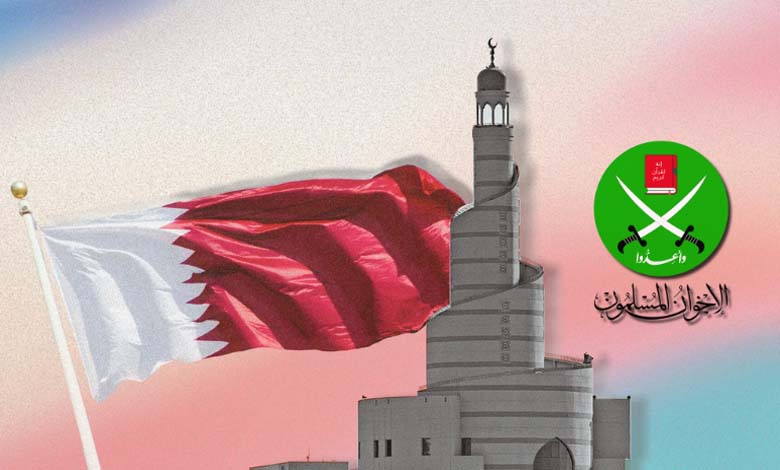The Muslim Brotherhood: A Transnational Organization Funded by Qatar and Turkey That Infiltrates Western Societies… How?

On the twelfth anniversary of Egypt’s June 30 Revolution, a new analytical study by Egyptian jurist and judge Dr. Mohamed Abdelwahab Khafagy, Vice President of the State Council, was published. The study sheds light on the deep dimensions of the Muslim Brotherhood’s infiltration into Western societies, revealing how it has evolved into a transnational network exploiting religion for political and organizational purposes.
-
The Egyptian Media Syndicate responds to the Muslim Brotherhood’s lies about Egypt’s stance on the Palestinian cause
-
The Muslim Brotherhood and Lies: The group promotes old videos to deceive Egyptian public opinion
Entitled “The Muslim Brotherhood: The Secret History of an Organization That Used Religion to Undermine the State”, the study tracks the group’s evolution from a local Egyptian movement into an international network active in over 70 countries. It asserts that the Brotherhood capitalized on liberal environments in Europe and the United States to establish religious and charitable fronts that, while appearing community-oriented, in reality served to advance its ideological agenda.
The study highlights the key role of Said Ramadan, the son-in-law of Hassan al-Banna, in founding the Islamic Center of Munich, which became a launchpad for the group’s expansion in Germany. In the UK, Brotherhood leaders established organizations like the Muslim Association of Britain after 2013, while in France and Belgium, they benefited from Qatari funding and non-profit structures to build influence within Muslim communities.
-
Did the Muslim Brotherhood aim to destroy the Egyptian identity? Details
-
From the Middle Leadership of the Muslim Brotherhood… Harsh Sentences Against a Brotherhood Cell Aimed at Striking the Egyptian Economy
It warns against the Brotherhood’s dual rhetoric: internally, a mobilizing discourse focused on “empowerment,” and publicly, a moderate tone promoting coexistence and human rights. The study also documents how the group used Qatari and Turkish funds after 2013 to launch media channels and set up front organizations in Istanbul.
In the United States, the Brotherhood operates through groups such as CAIR (Council on American-Islamic Relations) and ISNA (Islamic Society of North America), despite recurring accusations of supporting extremism. Europe has not been spared either: the group has built ties with leftist and liberal parties, branding itself as a defender of Muslim rights, though European intelligence reports confirm its ambitions to create “parallel societies.”
-
The Curse of the Muslim Brotherhood Haunts Egyptians in Turkey… New Issue of Citizenship Revocation
-
The Muslim Brotherhood launches a preemptive campaign to cast doubt on the Egyptian presidential elections… Details
The study further underscores how the Muslim Brotherhood exploited the political upheavals of the Arab Spring as an opportunity for empowerment, citing the experience of Tunisia’s Ennahda party and the Brotherhood’s involvement in Libya, Syria, and Yemen through alliances with armed groups and external funding.
Finally, the study notes that the designation of the Brotherhood as a terrorist organization by Egypt, Saudi Arabia, the UAE, and Bahrain reflects an advanced awareness of its threat. It urges Western nations to adopt similar steps to protect their societies from this cross-border ideological project.
-
Politicians Reveal: The Egyptian People Will Not Accept the Return of the Muslim Brotherhood
-
Fear and great concern within the Muslim Brotherhood after the Egyptian-Turkish rapprochement – Details
-
Turkish-Egyptian rapprochement.. Muslim Brotherhood youth demand safe havens outside Istanbul from their leaders
-
Dissident Muslim Brotherhood member: The group is facing major crises and confusion amid the Turkish-Egyptian rapprochement












